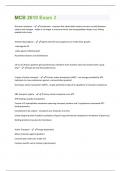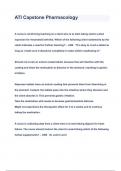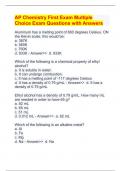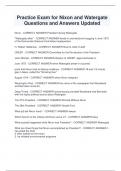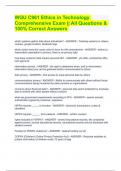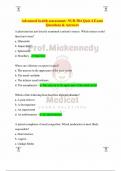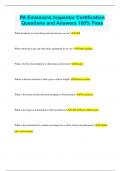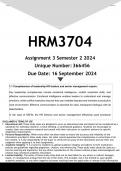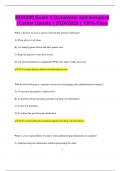Exam (elaborations)
MCB 2610 Exam 2 All Possible Questions and Answers with complete solution
- Course
- Institution
B-lactam resistance - Lactamases - enzymes that cleave beta lactam structure usually between carbon and nitrogen - makes it no longer a structural mimic and transpeptidase keeps cross-linking peptide side chains Antimicrobial Agents - Agents that kill microorganisms or inhibit their growth -cid...
[Show more]
